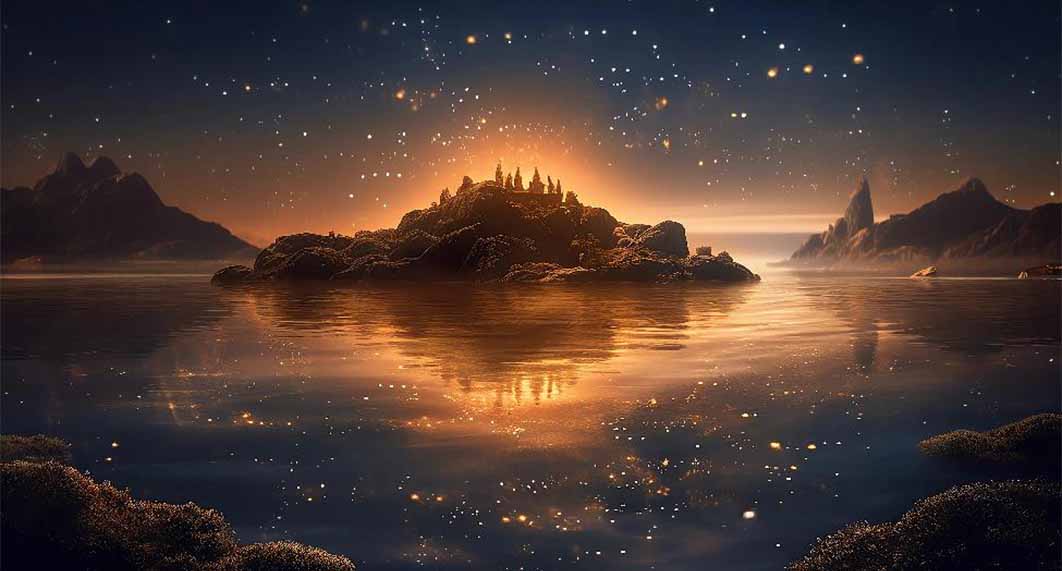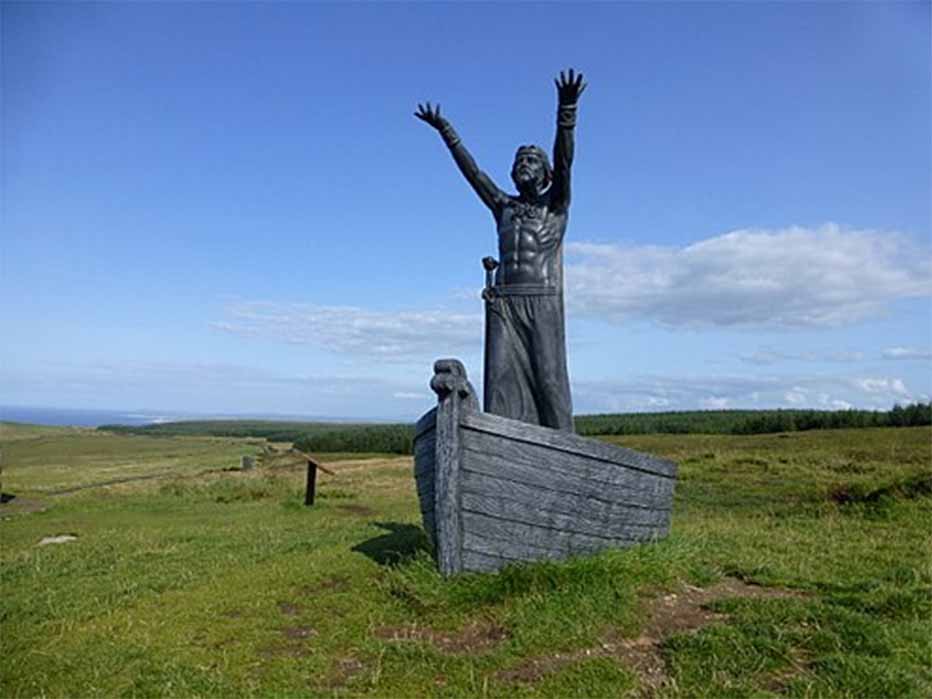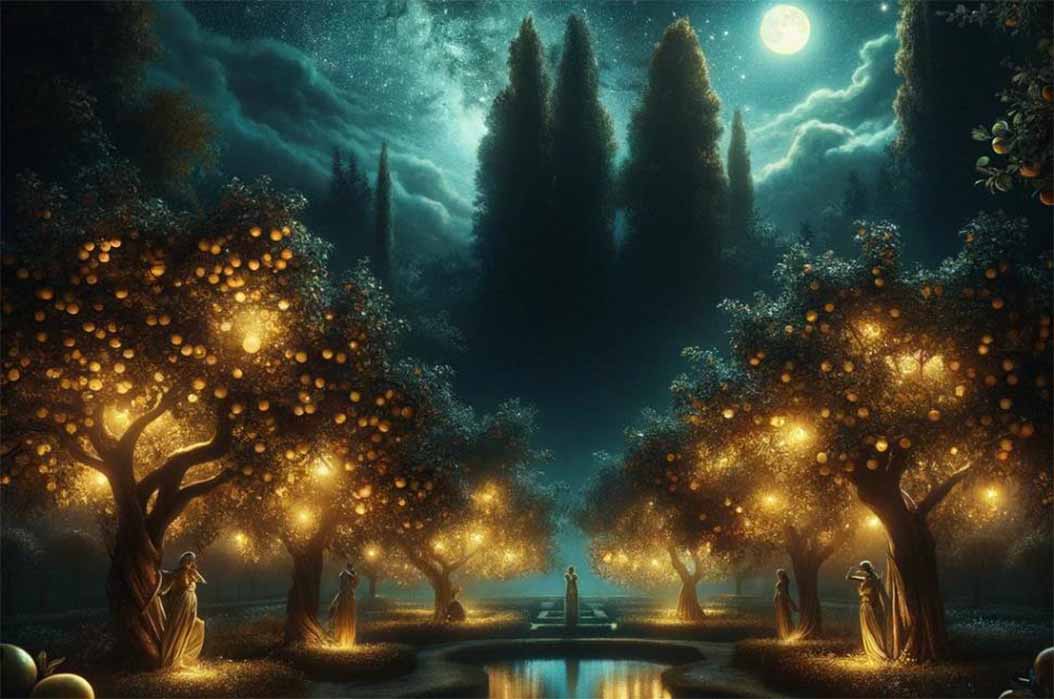
Avalon: Island of Apples
The Celtic Otherworld has always been a mystery; a strange, mysterious, and elusive place. What is not always appreciated is the extent to which the Celtic Otherworld, especially the magic Island of Apples, agrees with its Greek counterpart.
Since ancient times it had in fact been believed that the Celts got their concept of the Blessed Isles from the Greeks. The Greek historian, Plutarch, in his Life of Sertorius (8.2-3), maintains that the belief in the Elysian Fields passed into the Celtic world and modern scholars hold the same opinion.
In order to delve somewhat deeper and explore these possible origins, a closer look needs to be taken at a Celtic god and goddess closely associated with the Celtic Otherworld, namely Manannán/Manawydan and his consort, Rhiannon.
Manannán/Manawydan
An intriguing figure among the Tuatha Dé Danann was Manannán mac Lir, remembered in Welsh tradition as Manawydan fab Llŷr, “Son of the Sea.”

Manannán mac Lir sculpture by John Sutton at Gortmore, Magilligan, County Derry, Ireland. (Kenneth Allen / CC BY-SA 2.0)
Manannán was a shapeshifter and had a crane bag in which he kept the earliest form of the Hallows, the treasures of the Tuatha Dé Danann. He often appeared to sailors on the outset of their voyages. Manawydan was also a cunning and master craftsman. His first consort was Fand, “Pearl of Beauty.” He later married Rhiannon. After the Milesians gained control of the land, Manannán became the overlord of the remnant of the Tuatha Dé Danann as we read in the story, Altram Tige Dá Medar or The Nourishment of the Houses of Two Milk-Vessels.
Manannán was lord and guardian of the Blessed Islands, especially the Isle of Man, which bears his name, and the Isle of Arran, off the west coast of Scotland. Any one of these islands (other possibilities have also been put forward) could have been Emhain Abhlach, from which the well-known name, Avalon, was derived. Abhlach means “of the apple trees.” This refers to the apple trees that grew on the island, trees which bore golden apples, the source of eternal life and inspiration. The island, also called the “Plain of Honey,” was a place where “the young do not grow old at all.”

Representation of a mysterious and magical orchard of golden apples. (OpenAI's DALL·E technology)





